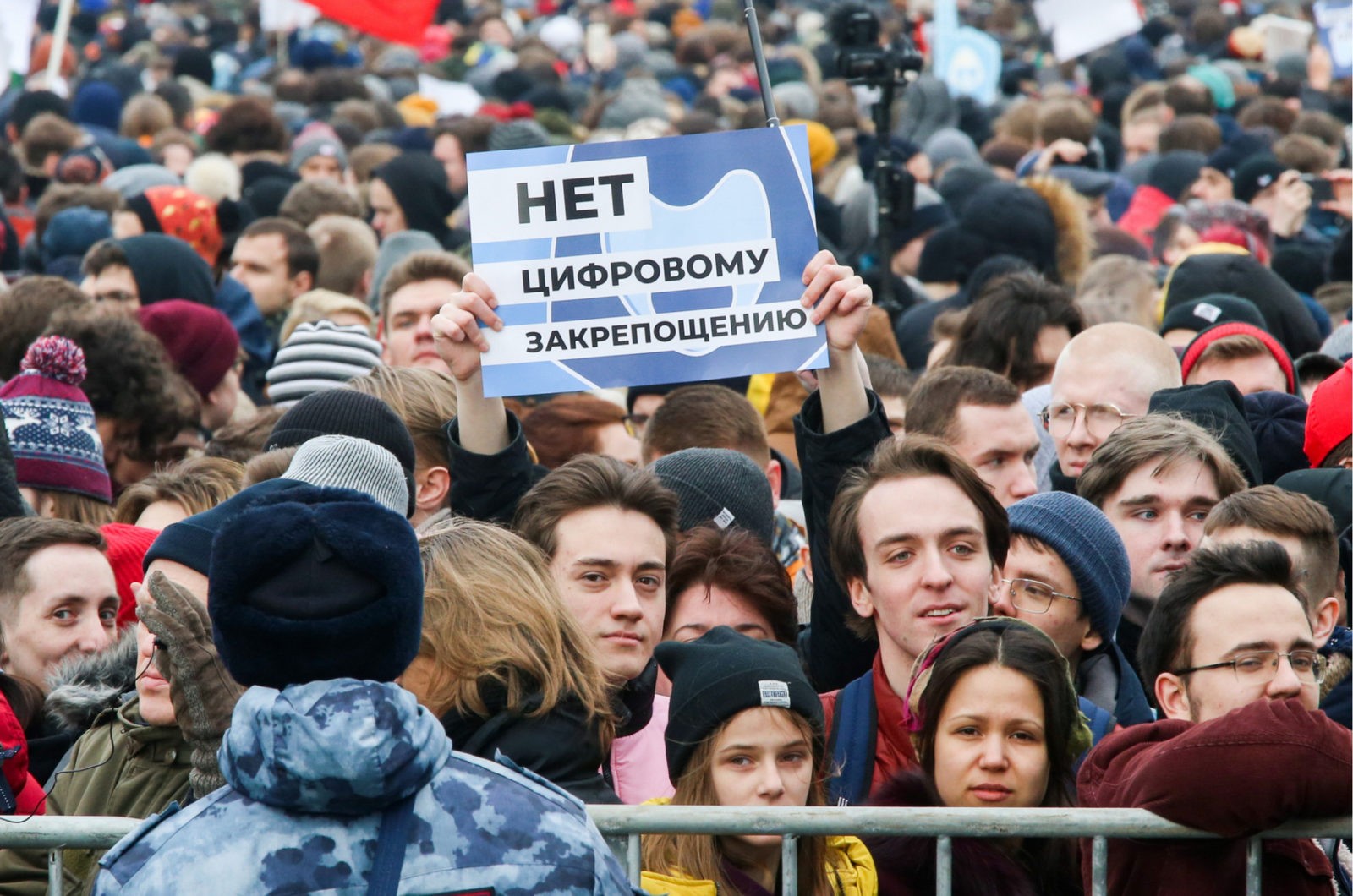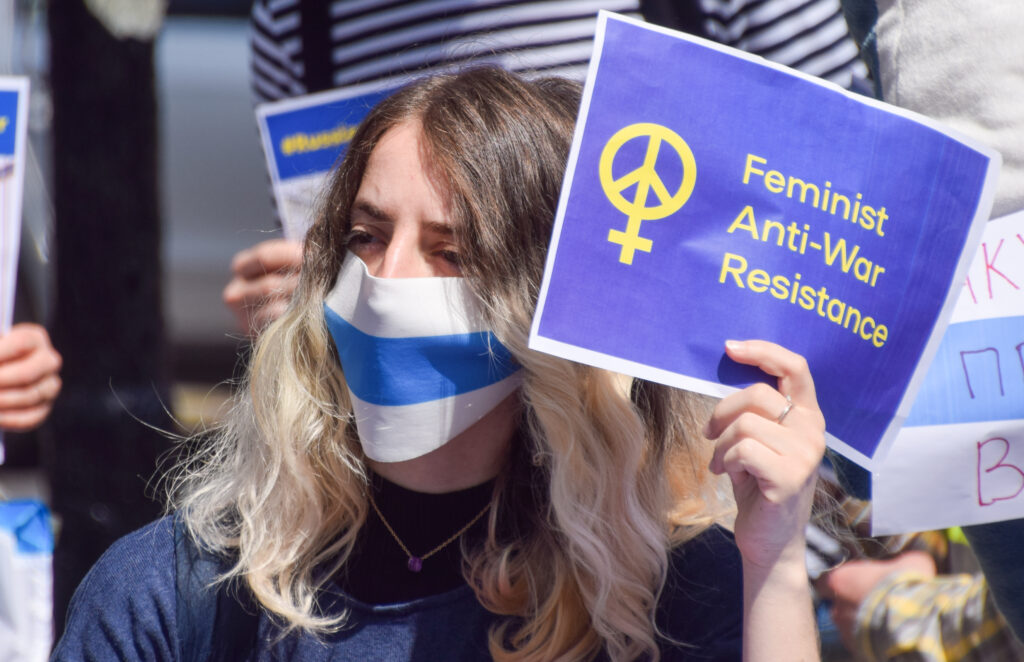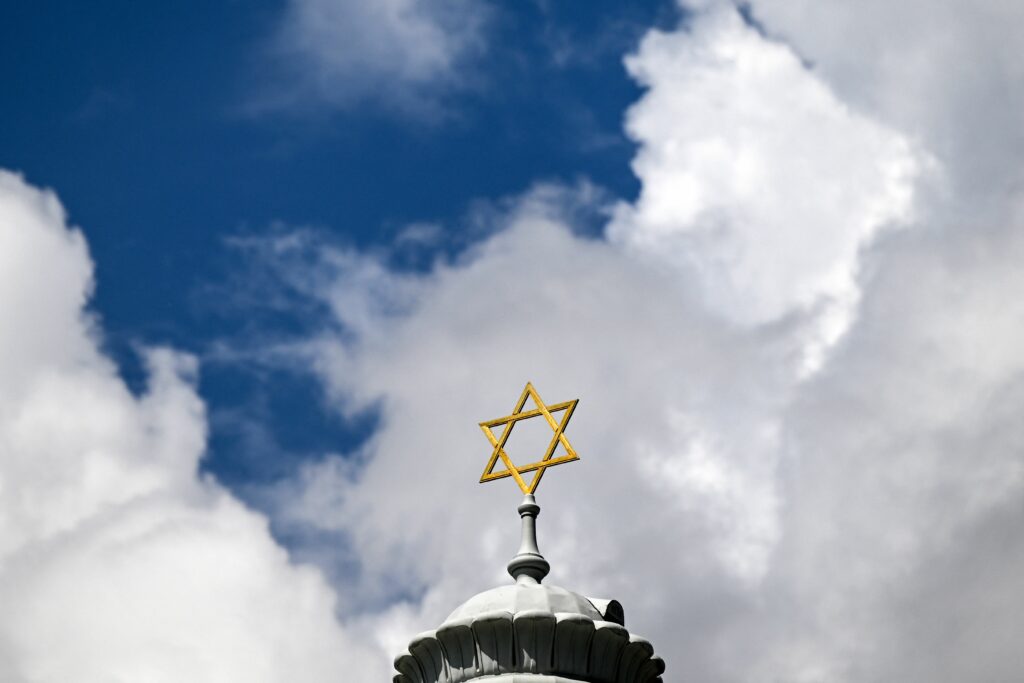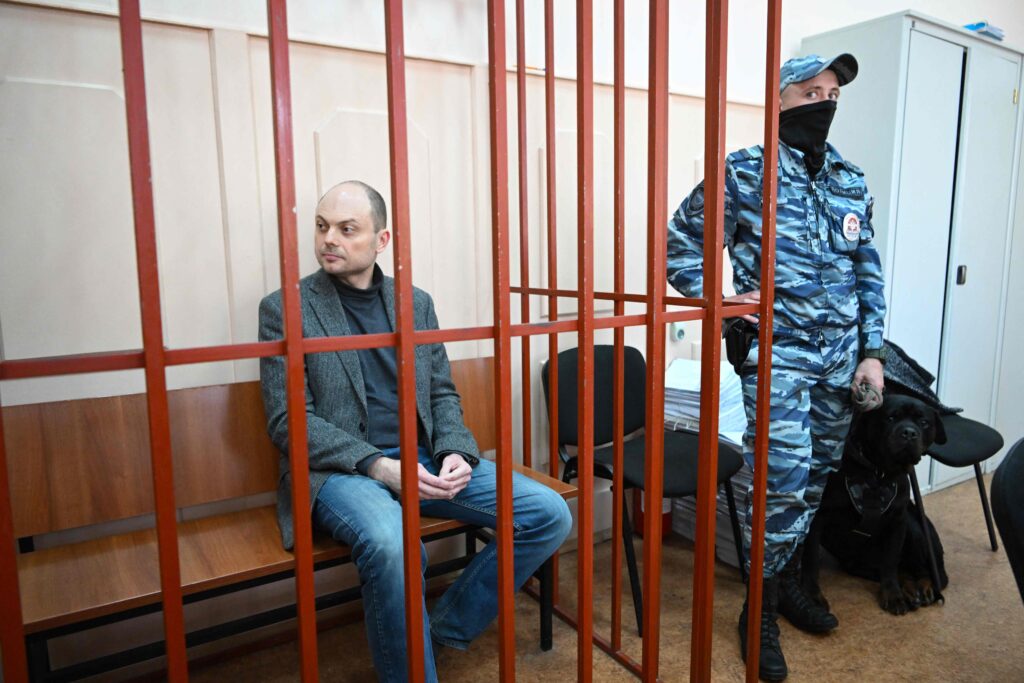On 3 September, Vladislav Sinitsa, a resident of Moscow, was sentenced to five years in prison for a tweet. It contained a comment on the campaign to deanonymise members of the security forces who had been beating protesters while hiding their faces behind masks and tinted helmets. Government experts found that the tweet incited violence against the children of the National Guard.
This prison sentence became one of the most severe sentences in the history of anti-extremist legislation in Russia: just a year less than the lower limit of punishment for premeditated murder. Sinitsa joins Boris Stomakhin, formerly a well-known columnist, who was sentenced for his support of Chechen separatists. Omsk activist Vadim Tyumentsev was sentenced to five years in prison for two videos on the war in Ukraine, and Tatar nationalist Rafis Kashapov received three years in prison for his publications on violations of the rights of Crimean Tatars and criticism of the annexation of Crimea.
After the relative thaw of 2018, it seems like frost has set in again.
The Russian authorities have been trying to control the Internet since 2012. During that time, they adopted dozens of laws imposing censorship, introducing liability for statements made on social networks, and limiting privacy and anonymity.
Almost 500,000 websites, including popular media, social networks and online services, have been blacklisted by Roskomnadzor (the Russian telecom regulator). The authorities are seriously discussing the possibility of blocking YouTube, and retweeting the news about a protest is punishable by up to 30 days of arrest or a fine of EUR 4,000.
Government officials have been obliged to inform their superiors of all social media accounts and have been banned from contacting journalists. When the evidence of Russian military involvement in eastern Ukraine was released via the news media, including involvement in the missile attack on flight MH17, servicemen were banned from carrying smartphones.
All this is being presented to citizens as a necessary measure to protect children, combat terrorism, and forestall the interference of foreign intelligence agencies in Russia’s internal affairs. In practice, this boils down to pressures on global online platforms; censorship of independent media; and repressions targeted at critics of the Kremlin. There are several underlying reasons.
First of all, it can be attributed to the rapid growth of Internet users, which multiplied 30 times in the first decade of the 21st century. (It has gone from three to almost 90 million people.) So total control over traditional media, something Vladimir Putin devoted his first term in office to, no longer guaranteed a monopoly on information. That allowed many online news outlets and blogs to exchange opinions and ideas; the dissemination of news appeared in the shadow of federal TV channels, without the government really noticing. However, this could not last for too long.
Soon it became clear that primitive content filtering at the level of Internet service providers did not work: users soon learned how to bypass blockages, and some companies even began to build tools to circumvent censorship directly into their products.
Therefore, starting around 2015, the government started to seriously tighten anti-extremist legislation and enforcement practices. Desperate to block unwanted news flow, the authorities attempted to intimidate those who distributed it. Increasingly, people began to receive real prison sentences for online extremism.
The Criminal Code provisions on extremism (primarily on the Internet) were moved into the category of medium seriousness or even grave crimes. As a result, it became possible to detain the accused before trial. It was possible to expand the statute of limitations for criminal liability and raise the time limit for the expungement of criminal convictions. Since that time, more than 150 people have been sent to jail for critical statements made on Facebook or Vkontakte. Most were sentenced under article 282 of the Russian Criminal Code (incitement to hatred or enmity, or humiliation of human dignity). Since 2011, a total of 2,850 people have been convicted under this article.
In addition to the real prospect of being put behind bars, an accusation of criminal extremism automatically means that the individual concerned is entered into the Federal Service list for financial monitoring and blocking all bank accounts; they will be allowed to spend no more than EUR 150 per month for subsistence, and will have to submit a request to the authorities to be allowed that. After their release from jail, ‘extremists’ are usually given administrative supervision for a period of up to eight years (with a ban on changing their place of residence without the consent of the authorities, and with the obligation to report to the police and other similar restrictions), and they are banned for life from working with minors, conducting business, and establishing political parties, the media and NGOs.
However, in mid-2018, significant changes took place in this area. Some news appeared in the media in a row about users from Barnaul being held criminally liable for pictures stored in their VKontakte albums. The city was called «the extremist capital of Russia», and the case of Maria Motuzna was the final straw. At his annual press conference, Vladimir Putin said that the fight against extremism should not be taken «to the point of lunacy and absurdity» and the discussion on the limits of freedom of speech was joined not only by human rights activists and other activists, but also the authorities. The Supreme Court explained that in cases involving extremism it is necessary to take all circumstances into account: the context, the presence of comments, the user’s attitude, as well as the scale of dissemination of dangerous information. In October 2018, Vladimir Putin unexpectedly introduced amendments to the State Duma, adding administrative prejudgment in cases of incitement of hatred: at present, criminal liability occurs only if the citizen concerned was already brought to administrative liability for a similar act during the preceding year.
Despite the amendments coming into force in January 2019, criminal proceedings under Article 282 were virtually stopped in the autumn of 2018. Moreover, numerous proceedings that were already in progress, not only under this article, were actively discontinued. It seemed that a real thaw had begun.
Unfortunately, the thaw was, firstly, relative (at the same time, the Federal Security Service began to actively explore cases of people justifying terrorism and calling for extremism), and, secondly, short-lived. Already in the spring of 2019, the so-called «new administrative cases» began to spread actively: they involved cases of contempt for the authorities.
A few months earlier, the State Duma promptly and without any discussion adopted a set of laws. These included amendments to the article of the Code of Administrative Offences on petty hooliganism. A fine of up to EUR 2,500 or arrest for up to 15 days is imposed on people who express clear disrespect for the state and its symbols, authorities, as well as the Constitution of Russia in an insulting form and do it online.
Starting from April 2019, there have been at least 44 known cases under the new provision, and we can already talk about a certain tendency. First of all, Vladimir Putin is most commonly the object of disrespect: he has been criticised by citizens for his failures in domestic and foreign policy. News of the fines for insulting the President has triggered a flash mob, and the expression «fairytale leader» has become a meme and is unlikely to be forgotten soon.
Secondly, as a rule, Internet hooligans are found in Russia’s provincial territories: small towns or even villages, often located in the most remote regions, far from Moscow. There, even the minimum penalty in the form of a fine of EUR 500, which is most often imposed by district courts, is extremely significant and severe.
Thirdly, cases are initiated by various police units: district commissioners, transport departments and even those dealing with economic affairs. This is a clear indication that rank-and-file officers have discovered a promising area where they can easily improve their performance statistics.
And finally, the cases are considered quickly, without the participation of prosecutors or counsels for the defence, the hearing of witnesses or other formalities. This is due to the radically simplified procedure for administrative offences under the current Code. Cases of administrative extremism are not yet as widespread, but their number has been constantly growing. At the same time, the punishment for reoffenders in such cases is much harsher (for contempt: a fine from EUR 1,500 to 3,000 or arrest, and criminal liability for extremism).
Perhaps this is exactly the plan of the Russian authorities: on the one hand, to alleviate the public indignation because of absurd criminal cases about memes on VKontakte and, on the other hand, to create a more effective pressure mechanism. Citizens held liable under «political» legal provisions have their activities being put on preventive record, whether formally or informally, and their posts in social media are being constantly monitored by operating officers from the Centres for Countering Extremism so it is very easy to find an excuse to instigate a new case.
Undoubtedly, the authorities expect that activists who have been fined under the administrative procedure will be much quieter, facing the risk of criminal prosecution. And staying quiet is all that is expected of them.










